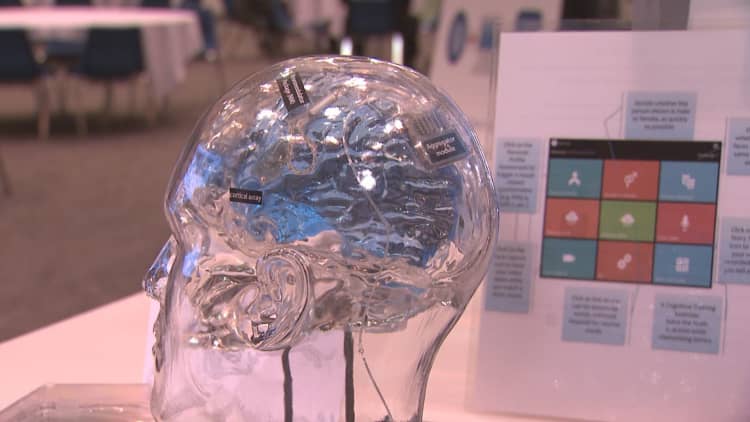
Forgetful? Imagine having the power of a computer to help you recall memories.
That's what DARPA, the Defense Advanced Research Projects Agency, is working on with a program called RAM: Restoring Active Memory.
Part of the agency's broader work in understanding the brain down to the level of individual neurons, the RAM project would implant electrodes in the hippocampus, the center of the brain where declarative memories — directions, or a grocery list, for example — are formed.
Through an understanding of how neurons fire properly during these processes, the RAM system would monitor the formation and recall of memories and then wirelessly transmit that information to a computer worn externally. If the computer sensed the improper formation or recall of a memory, it could send a corrective signal back.
The work is part of DARPA's involvement in President Barack Obama's BRAIN initiative, a goal to do for neuroscience what the Human Genome Project did for our understanding of genetics.
DARPA, the nerdy science division of the Defense Department (you may remember it for its early work on what became the internet), envisions the RAM system initially to help veterans returning from war with traumatic brain injury. It's one of several "neuro-prosthetic" projects DARPA is currently working on with partners across academia and industry.
The RAM system is still in the very early stages; Justin Sanchez, director of DARPA's biological technologies office, says it's in testing with human subjects, but more work needs to be done at the level of understanding the human brain. DARPA's goal is to have a prototype ready for broader testing in three to five years.
"So when we think about memory, we say, 'What are the neurons doing that are supporting the formation and recall of declarative kinds of memories?'" Sanchez said at DARPA's "Wait, What?" conference in St. Louis.
"Those are memories about facts," he said. "We still have huge amounts of learning to do there, and these technologies that we're developing are helping us get to those circuits, helping us to understand what they're doing in terms of memory formation and recall and helping us to develop those next-generation therapies for memory."
Though DARPA's priority is developing technologies to aid the military and veterans, its researchers hope its work will help the general public as well.



